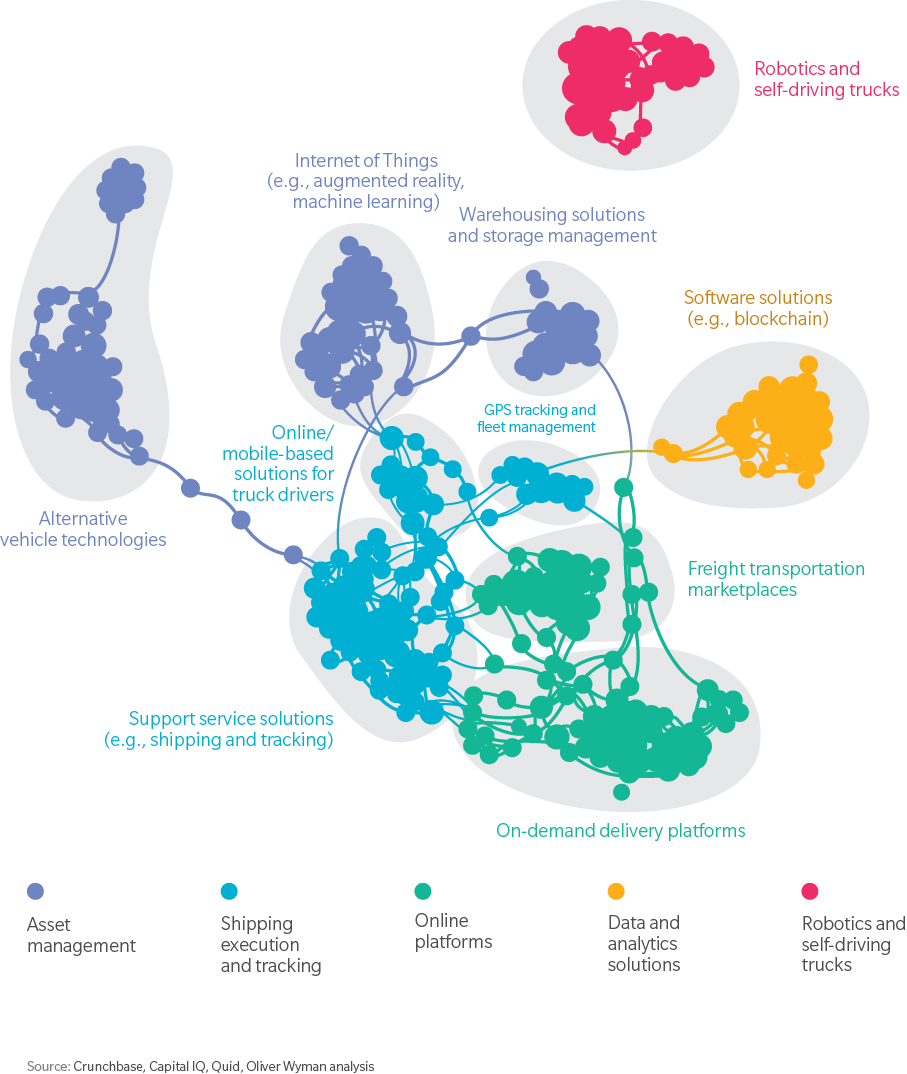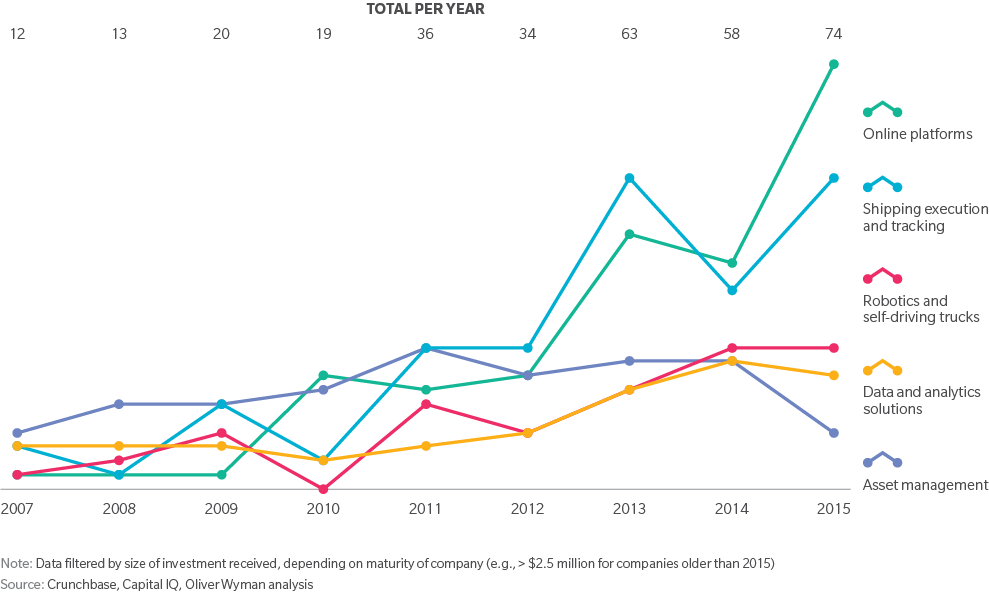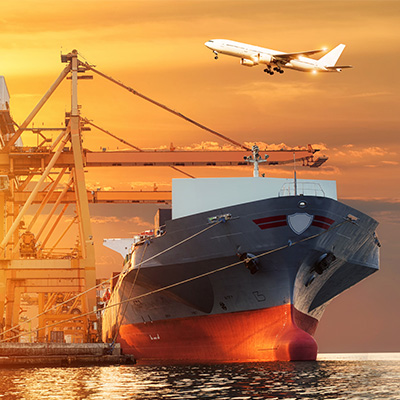Agile, innovative start-ups are capitalizing on the high number of transactions and large amounts of data being handled and generated by logistics players to develop an expanding range of technology-driven solutions: Around every fifth day, a new logistics start-up is founded. Logistics incumbents are being besieged by new digital business models on many different fronts, but could also use these would-be competitors as a springboard to fuel next-generation growth and innovation strategies.
THE RACE TO INVEST
In a recent study, we identified more than 400 start-ups worldwide that could eat into the competitive advantages of logistics incumbents. Five major star t-up clusters dominate the landscape: online platforms, asset management solutions, robotics/ autonomous vehicles, shipping execution & tracking, and data & analytics solutions. A large percentage of new logistics start-ups are focused on online platforms and data-driven services – areas that are easily scalable and require little fixed-cost investment. But rapid technological evolution means that all identified start-up clusters are seeing a steady stream of new entrants.
While funding is still not at the level of leading business-to-consumer and sharing economy disruptors, logistics start-ups are attracting serious investor interest – more than $11 billion in investments over the past decade. The top ten global logistics start-ups have received around half of this funding. In line with increasing amounts of funding for logistics start-ups, annual funding rounds have quadrupled since 2007.
MAJOR LOGISTICS START-UP CLUSTERS
CHALLENGES FOR INCUMBENTS
Major logistics incumbents have started to carefully invest in digital start-ups. UPS, for example, has developed a Strategic Enterprise Fund to invest in start-ups that complement its footprint – to the tune of some $600 million across 24 investments. DHL has selectively invested in start-ups that promise short- to mid-term leverage, such as Streetscooter, which is developing cost-efficient electric delivery vehicles. And DB Schenker is working with American freight exchange Uship to improve surface transport utilization.
Logistics incumbents are facing intense competition however for the best partners and targets. This competition is coming from outside of the transport and logistics space, and includes a broad range of heavy hitters: Technology giants such as Amazon and Alibaba are investing in start-ups to innovate in last-mile delivery, while others, like Google and SAP, are looking more broadly at advances in big data analytics, artificial intelligence, and machine learning. Mobility providers such as BMW and Mercedes are developing passenger and cargo transport platforms as well as autonomous driving solutions. And venture capitalists are leveraging their networks and experience in business-to-consumer to quickly scale up asset-light business models in fast-growing areas of logistics.
These moves suggest that the key challenge for logistics incumbents may be that they are not integrating and adapting to technological disruption quickly enough to capture competitive opportunities before outside investors do. And start-up investments could be a critical path to leapfrogging the challenges of digitalization for large logistics organizations.
Start-ups can quickly signal which next-gen changes are worth pursuing and which aren’t, because they have the flexibility to test and evolve innovative solutions in an agile way. Invested incumbents can then leverage surviving trends to optimize their own operations and improve digital integration with their clients’ supply chains and production processes.
DIGITAL LOGISTICS START-UPS CREATED GLOBALLY, 2007-2015
MAJOR SOLUTIONS CATEGORIES

COOPERATING WITH STARTUPS
Logistics incumbents should not be afraid of disruption through start-ups, but instead need to see them as a means to an end: enhancing and evolving the core business, while establishing ties to the innovation community – entrepreneurs, inventors, and innovators.
A partnership model between incumbent and start-up is vital for investments in start-ups to be effective. Close collaboration can be a means to ensure early development decisions best serve the needs of the business. While efficient control mechanisms are important, they must be developed carefully so as not to interfere with entrepreneurial spirit and innovation culture. And incumbents must complement these external collaborations with internal initiatives to foster their own innovation culture and the acceptance of start-up ideas.
Successful venture capitalists provide another important insight for established logistics companies: traditional profit models need to be rethought. Digital logistics start-ups generally offer scalability in large market segments, together with higher customer lifetime value than the initial acquisition cost. This is a sea change for the conservative and risk-mitigating culture of many logistics incumbents. Tolerating uncertainty and risk, while being flexible with regard to business model pivots, is a virtue that must be shaped actively within traditional organizational structures. Investing into and partnering with digital start-ups will not, by itself, transform the legacy business of a transport and logistics company. But it can provide access to capabilities and talent to create new digital business pathways. The start-up approach of fragmenting existing supply chains and upgrading the efficiency and transparency of transport businesses through the application of new tools and technologies complements incumbents’ legacy capabilities. Established logistics providers have a window right now to capitalize on the energy and agility of digital startups – or else risk meeting these new entrants head-to-head as competitors in the future.




